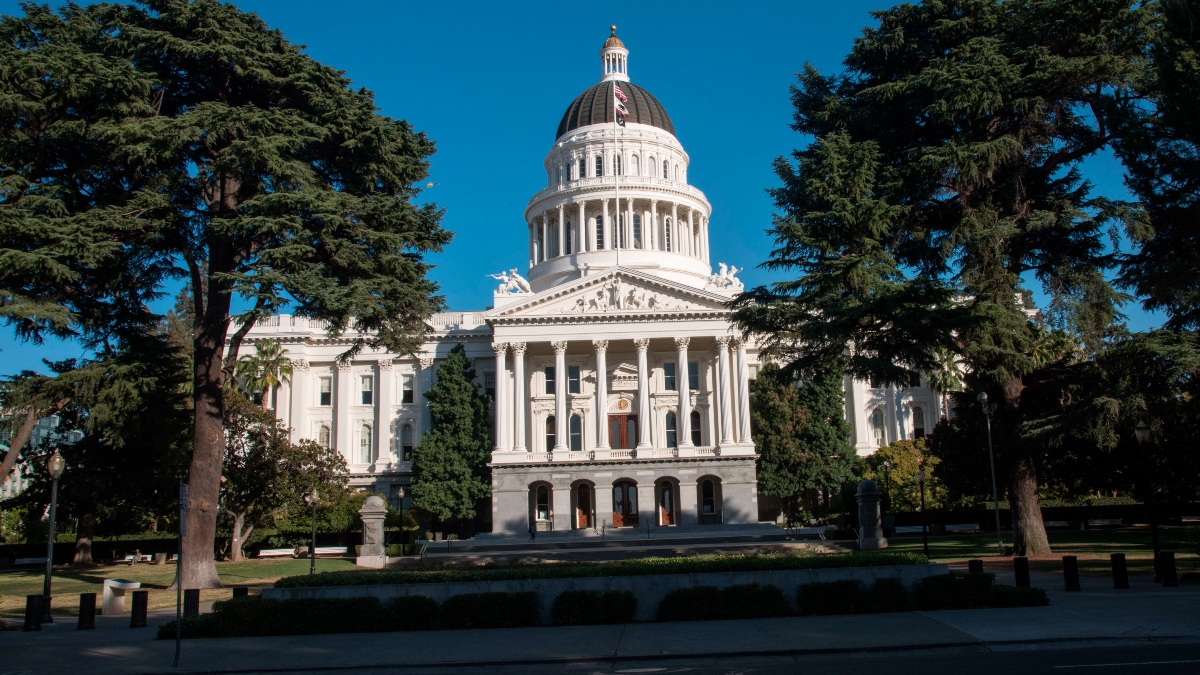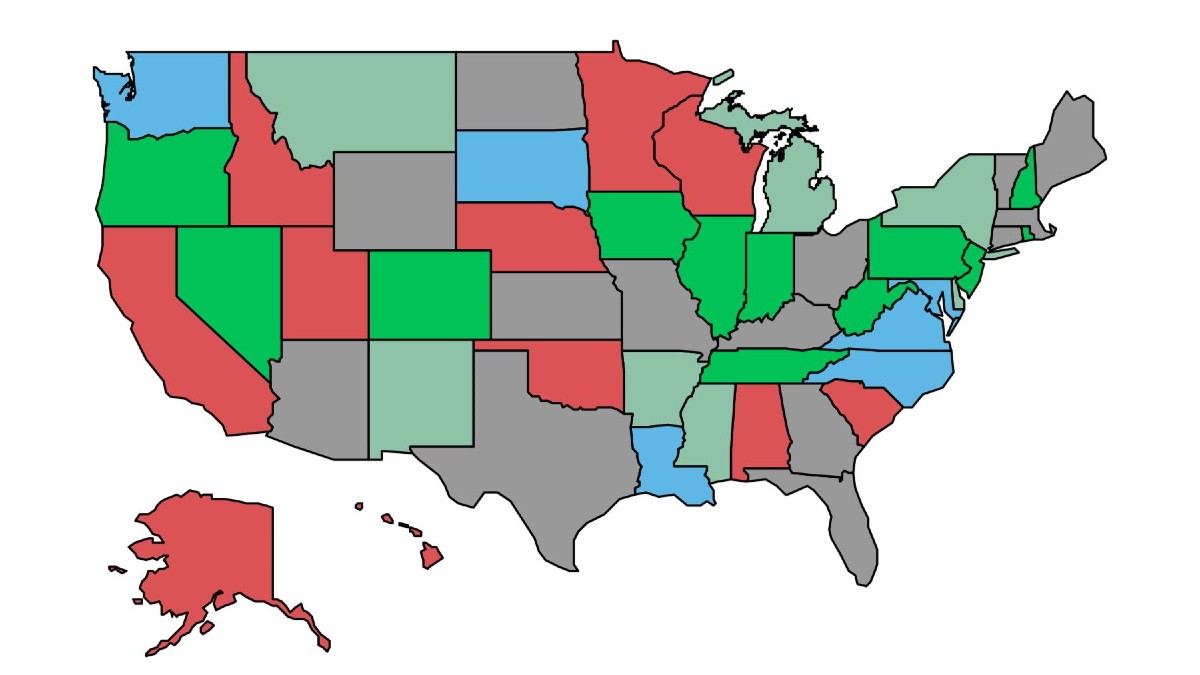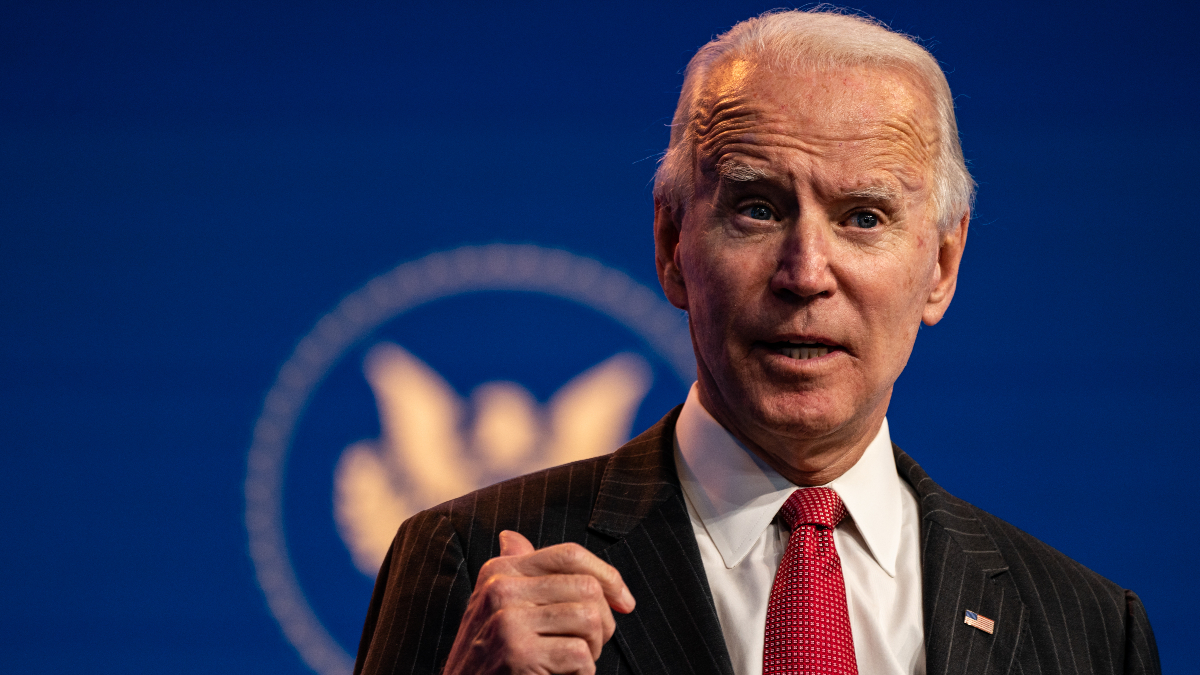
Education Images/Universal Images Group via Getty Images. Pictured: California State Capitol.
The nation’s largest potential retail sports betting market is now closer than ever to having that become a reality, the latest development in a wild month for California gaming.
A petition led by the state’s Native American casinos to place a sports betting measure on the 2022 ballot is advancing toward fruition after supporters met a key submission deadline earlier this week. The latest step in what appears to be a successful drive comes days after the tribes were dealt a major blow by an appellate court, which ruled state card rooms could continue offering “player-banked” table games, which have been a source of contention between the two entities for decades.
These major developments come at the same time the state’s attorney general, who has had an at-times contentious relationship with the card rooms, is set to take a federal position and while a leading gaming backer in the legislature is set to leave his leadership role atop a powerful committee.
Additionally, the state’s multibillion-dollar gaming industry is facing a new wave of retail closures as California implements some of the nation’s most stringent COVID-19 pandemic restrictions.
California Tribes’ Sports Betting
The California Secretary of State’s office confirmed with the Action Network on Tuesday that backers of a 2022 sports betting ballot measure had submitted signatures to county governments for verification, the next step in the certification process that would put the question before voters. California tribal gaming leaders have publicly said there are ample signatures to place the referendum on the ballot, which would allow Native American casinos to open retail sportsbooks if approved by voters in 2022.
Sportsbook openings at dozens of casinos is unquestionably a major boon for bettors and operators alike, but the tribes’ proposal limits betting to within the actual casinos, many of which are in remote, rural parts of the state. The tribes hope sports betting, typically a low-margin offering, will be a new way to attract in-person visits and additional foot traffic to more lucrative gaming and entertainment options at their casinos, which are the largest revenue generator for many California tribes and their surrounding communities.
Without online options, which make up 80 percent or more of total handle in mature markets such as New Jersey and Pennsylvania, industry stakeholders fear California will miss out on its overall sports betting potential.
Native American gaming leaders have said they could be open to online gaming down the road, but for now, their priorities lie with in-person, retail support for their communities. The pending ballot measure is also the furthest California sports betting has advanced toward any type of legal wagering, a scenario that seems unlikely to change any time soon.
Card Rooms’ Legal Victory
As the tribes look to advance sports betting hopes through the ballot box, their rival card rooms earned a major victory in the courts.
An appeals court earlier this month upheld a lower court’s dismissal of a lawsuit brought by the tribes against the government. The tribes argued the government was violating their exclusive rights to offer table games such as blackjack by not enforcing restrictions on state-regulated card rooms.
With the courts rejecting the case, the card rooms now have further legal protection to host “player-banked” table games. The card rooms have offered these games for years, where instead of a traditional dealer, players take turns distributing the cards. Card rooms have further worked around this restriction by hiring “third-party proposition players” who act as de facto dealers for every round.
This has spurred years of tribal legal challenges. Native American groups have argued the 2000 constitutional amendment that permitted California tribal gaming gives them exclusive rights to casino gaming, which they have said is violated by the card rooms.
Short of an unlikely appeal before the U.S. Supreme Court, the tribes have few additional legal remedies to stop the player-banked games at card rooms. The tribes could push a separate vote-backed constitutional amendment to restrict the card rooms, but that would face significant political headwinds.
A legislative solution seems even less likely. Like the tribal casinos, card rooms are the largest employer and revenue generator for many California communities, generating billions in revenue annually. They carry significant political and financial sway in the legislature, and there seems to be little inclination that lawmakers would support something that effectively incapacitates card rooms — and their millions of dollars in annual tax revenues.
Other Sports Betting Impacts
This is a boost for card rooms’ financial bottom lines but will likely have little impact on sports betting hopes outside the tribal casinos. To open sportsbooks, the card rooms would still have to be allowed to do so via a constitutional amendment, one either passed by the legislature or through a signature petition similar to the tribes’ drive.
The card rooms supported a legislature-backed compromise amendment proposal earlier this year that would give the tribes and horse racing tracks exclusive sports betting rights in exchange for codified approval to continue offering player-banked games, which would be far more lucrative than sportsbooks. With the courts now firmly on their side, the card rooms have little motivation to give away sports betting rights when they can now continue player-banked games.
With the tribes seemingly on their way to sports betting in coming years, and a legislative solution still improbable, the card rooms could try to push a voter-backed constitutional amendment of their own. It remains to be seen if they would take on such an effort, but it doesn’t appear to be a priority after their big court win.
New Gaming Leaders
Future gaming developments for both groups could be influenced by major shakeups in some of California’s most important political positions.
California Attorney General Xavier Becerra has been taped by president-elect Joe Biden to lead the federal department of Health and Human Services. Assuming Senate confirmation, California Gov. Gavin Newsom will have to find a new top attorney for the state, a coveted position that has a long list of possible candidates.
California’s next attorney general will take office facing what remains a contentious relationship between the state’s largest gaming interests.
At times, Becerra had an acrimonious relationship with the card rooms after he proposed a crackdown on player-banked card games nearly a year ago. This contrasted from his predecessor, Kamala Harris, who, before serving as a California senator and then Biden’s running mate, determined the card rooms could largely continue operating player-banked games with only minor limitations.
More questions abound in the legislature. Assembly member Adam Gray, one of gaming’s leading voices in the legislature and a co-sponsor of the sports betting compromise legislation earlier this year, will be replaced by Jim Frazier as chair of the powerful Government Oversight committee. Frazier’s legislative gaming background is far less comprehensive, but he did co-sponsor a 2014 bill that restricts online gambling-themed games and sweepstakes.
The political uncertainty comes as more and more card rooms are forced to close and Native American casinos, which are not under the same regulations as the commercial facilities, are facing pressure to do the same. Tribal sports betting, as well as card room player-banked gaming rights, seem more certain going forward, but much remains uncertain for gambling options in the nation’s most populated state.

